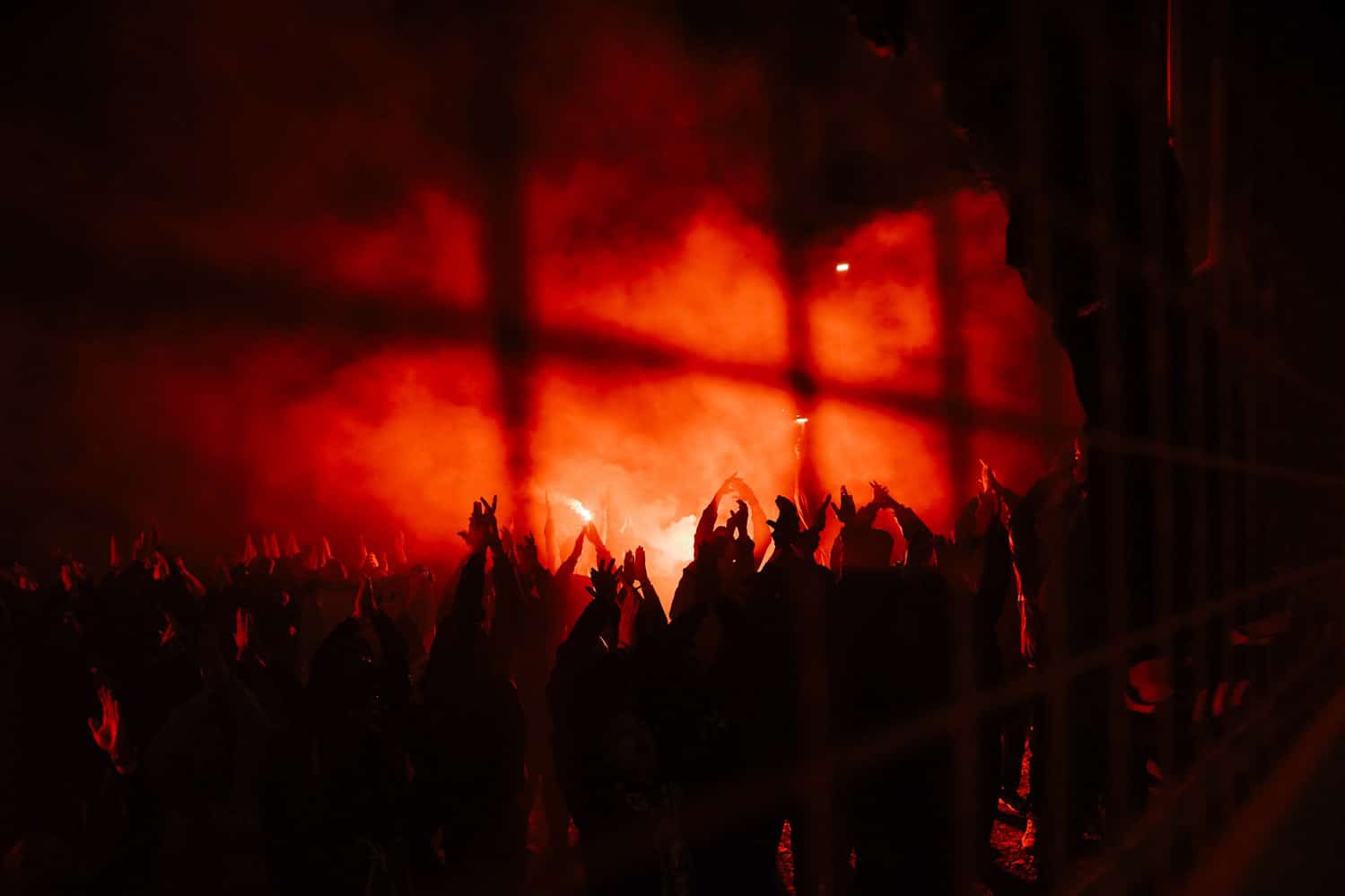Four people arrested over violence that broke out at a football match in Limassol at the weekend were remanded for seven days on Tuesday by the Limassol district court.
The suspects are two 17-year-olds, an 18-year-old and a 21-year-old, all from Limassol, who were intercepted outside the Ael fan club premises shortly after they were seen getting into a car intending to escape. A metal bar was also found in the vehicle.
Violent incidents unfolded ahead of an Ael-Apollon match on Sunday at Limassol’s Alphamega stadium. A large crowd of football fans then climbed into the stadium without tickets.
After flares were lit on the stands and Molotov cocktails were found police called for everyone to leave the stadium and be rechecked for tickets and banned items but when everyone would not leave the match was called off.
In addition to the 17 people police said they were looking for on Monday, photographs of a further 15 were issued on Tuesday.
The court had reserved its decision at the police’s request after proceedings were held on Monday at Limassol general hospital, where one of the suspects was being treated under police guard.
He claims to have been injured by the police. Meanwhile, three police officers were injured during the altercations, one seriously.
Justice Minister Marios Hartsiotis on Tuesday called on football clubs to isolate what he referred to as “100, 500 or even 1,000 mindless thugs”, adding that the hooligans responsible for the incidents at Alphamega stadium “fired flares at people who were simply doing their jobs”.
Speaking to state broadcaster CyBC, Hartsiotis also defended the police, who were accused of inadequacy after the incident.
“Are the police ever enough when they have to deal with flares and bombs?” he asked ironically.
He also stood by the government’s stance and the efforts made by the justice ministry in recent months to combat stadium violence.
He took a dig at the Cyprus Football Association (Kop) for not recognising the dangers that the Limassol derby posed before Sunday, “especially following warnings issued on September 12 about potential disturbances before, during and after the match.
“The association could have taken further action rather than issuing a mild admonition to the clubs,” he said.
Hartsiotis further stressed that for three months, the government had been urging Kop to take measures but had not seen sufficient determination from the association.
“The solution does not lie in increased policing but in stricter laws that allow the state to intervene where the association cannot,” he said.
“These include harsher penalties and point deductions for teams, measures which have not been implemented to avoid upsetting the clubs.”
Head of the police branch of Isotita trade union Nikos Loizides highlighted several failures in security measures.
Speaking to Sigmalive, he said that three police officers narrowly escaped serious injury or death during the violent incidents, which involved over 100 flares, 40 Molotov cocktails, and stones thrown at officers.
Loizides called the situation “shameful” and apologised on behalf of the state to the injured officers.
“We managed to prevent them from being sent home in coffins. I am ashamed and offer an apology to those three colleagues who fought, were injured, and nearly lost their lives,” he said.
He pointed to numerous security lapses in the country’s stadiums, including the lack of permanent perimeters, body search areas, electronic fan cards with scanners, high-definition CCTV, and other key safety measures.







Click here to change your cookie preferences